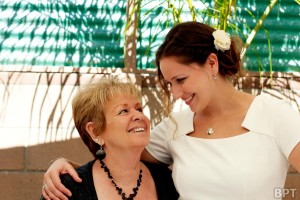NJ Top Doctors offers some background on seven of the top types of senior care
 (BPT) – More Americans than ever before are now older than 65, and in just four more decades, for the first time in history, there will be more seniors in the U.S. than people younger than 18, according to the U.S. Census Bureau. Given those numbers, is it any surprise that many families wrestle with decisions for how to take care of aging parents, grandparents and other loved ones?
(BPT) – More Americans than ever before are now older than 65, and in just four more decades, for the first time in history, there will be more seniors in the U.S. than people younger than 18, according to the U.S. Census Bureau. Given those numbers, is it any surprise that many families wrestle with decisions for how to take care of aging parents, grandparents and other loved ones?
“Deciding how to take care of an aging loved one can be a challenging, emotionally wrenching experience,” says Danielle Russell, vice president of operations and business development for Assisted Transition, a network of independent consultants that help families find elder care. “The good news is that as the population of elders has expanded, so have elder care options.”
Just 20 years ago, families might have had to choose between putting a parent in a nursing home or having one younger family member quit a job to stay home and care for the parent. Today, options abound and it’s important to know what’s available before making such an important decision.
Russell offers some background on seven of the top types of senior care:
* Assisted living communities – Seniors who require assistance with daily activities such as dressing, eating or bathing may still wish to live as independently as possible. Assisted living communities strive to provide an appropriate level of care while allowing residents to maintain as much independence as possible. Seniors who are no longer able to live completely independently, but who do not need nursing home, Alzheimer’s or dementia care, may find this type of arrangement works for them.
* Respite/short-term care – This type of care provides short-term breaks for families that may need elder care for a short time – a few hours, a day or a weekend, for example. Options can include an in-home skilled health assistant, an adult day program outside the home, or residential respite care facility.
* Independent living communities – In these residential communities, seniors can live by themselves with minimal assistance for certain tasks and needs. Elders with mild mobility issues or forgetfulness might do well in this type of environment.
* Rehabilitation centers – A senior recovering from a minor health issue may require extra care and therapy to regain the ability to live independently. Rehabilitation centers provide care as well as occupational, physical or speech therapy.
* Dementia care – Dementia is a progressive disorder that weakens memory, impairs judgment and diminishes mental abilities. Elders experiencing dementia may need an increasing level of care. Dementia care can occur inside the home or in a care facility.
* Alzheimer’s communities – A progressive, incurable cognitive disorder, Alzheimer’s affects memory and mental abilities. Patients usually require a high level of care with everyday tasks, but may be in physically good health. Alzheimer’s communities specialize in caring for patients who require this high level of care.
* Skilled nursing homes – Licensed by the state in which they operate, skilled nursing homes provide the highest level of medical care outside a hospital. These round-the-clock residential facilities care for patients who require a high level of care, such as those who are bed-ridden or suffer from chronic health issues that require 24-hour access to medical aid.
Even the most diligent families may have difficulty sorting through all the elder care options and decisions they face during the stress-filled process of choosing care. Many seek advice and expert assistance, such as from Assisted Transition, that can help ensure their loved ones receive the best possible care for his or her needs. The organization offers information, resources and free placement services to families looking for senior care and housing options. Assisted Transition provides referrals to assisted living facilities, nursing homes, residential care homes, senior housing and other industry resources. To find a consultant near you, visit www.assistedtransition.com.
By 2060, more than one in five Americans will be 65 or older, according to U.S. Census projections. As the population continues to gray, more families will need help in caring for aging loved ones – and in finding care arrangements that are right for their family.